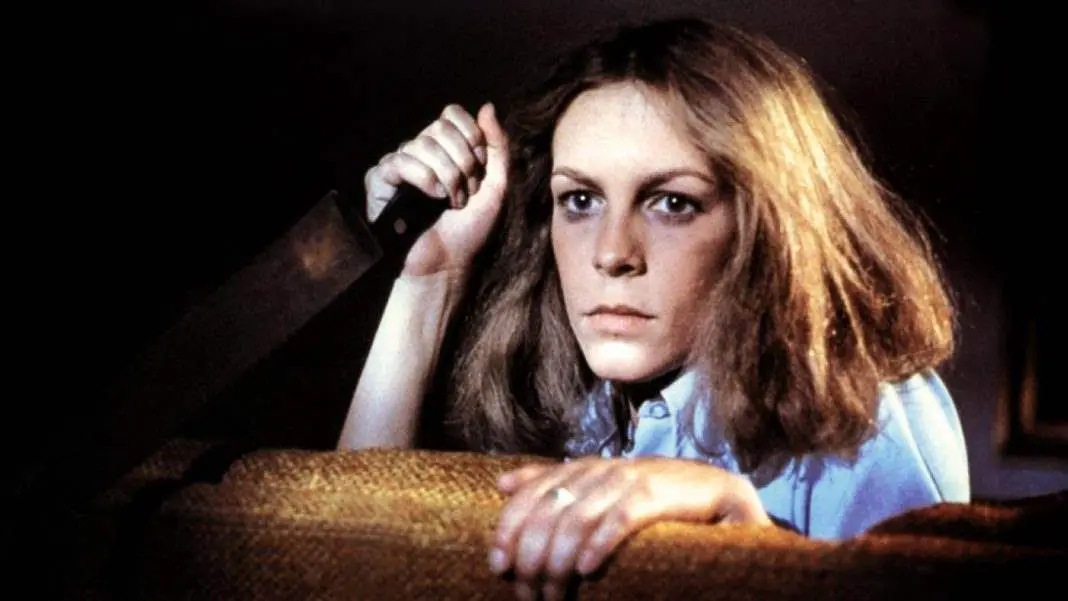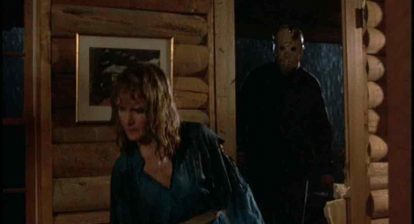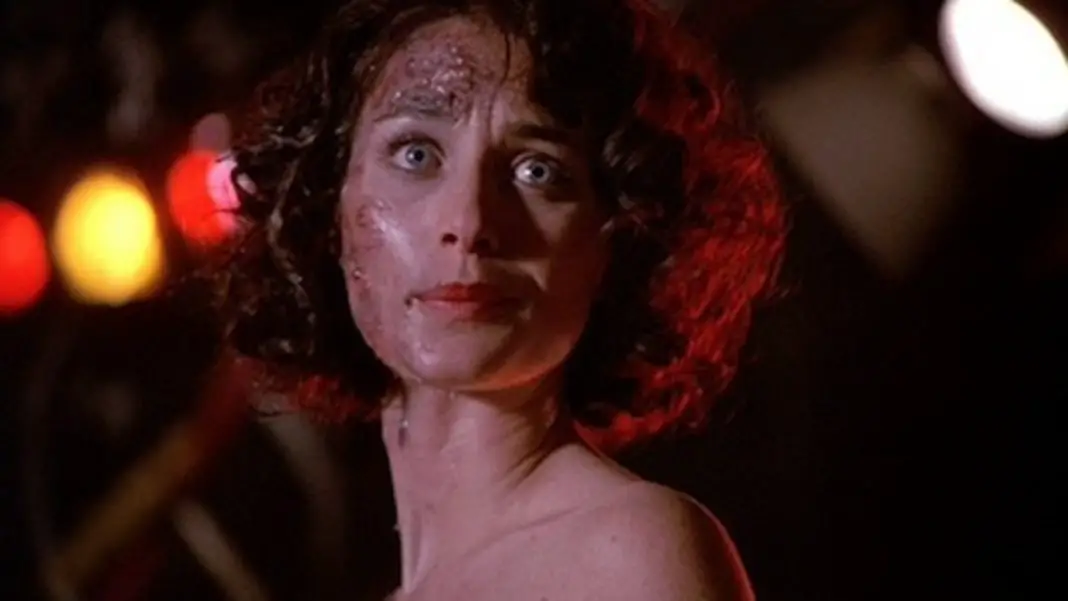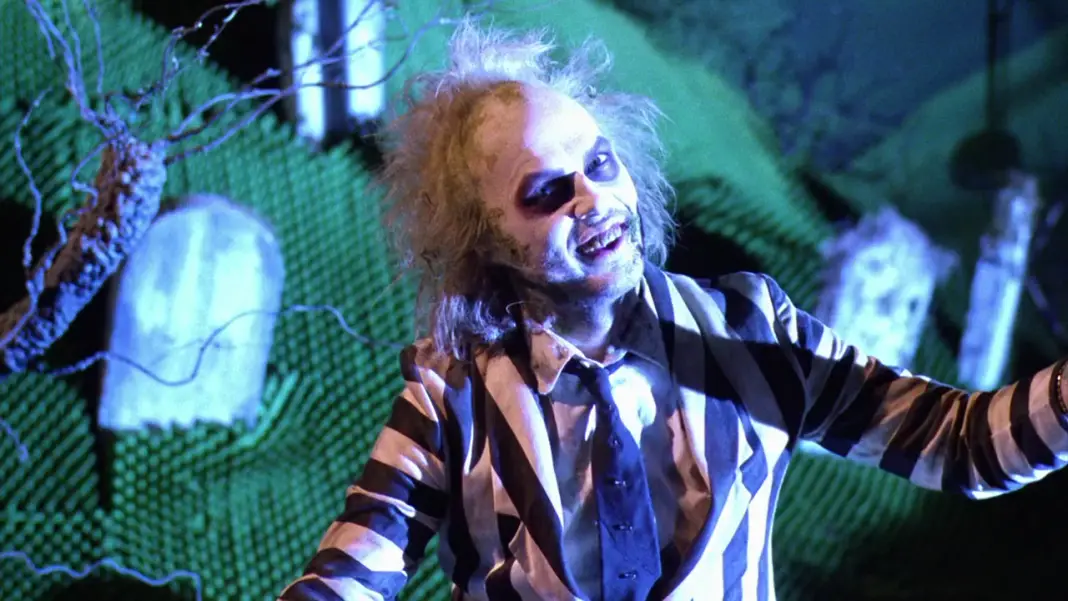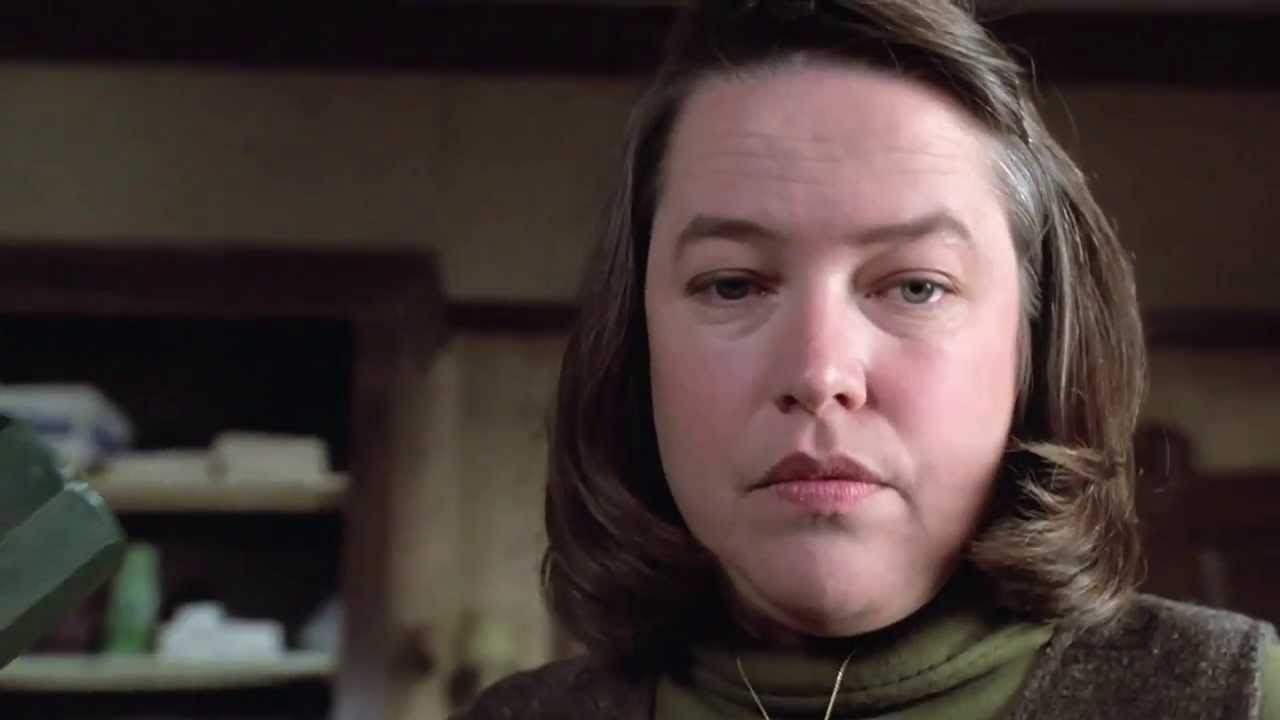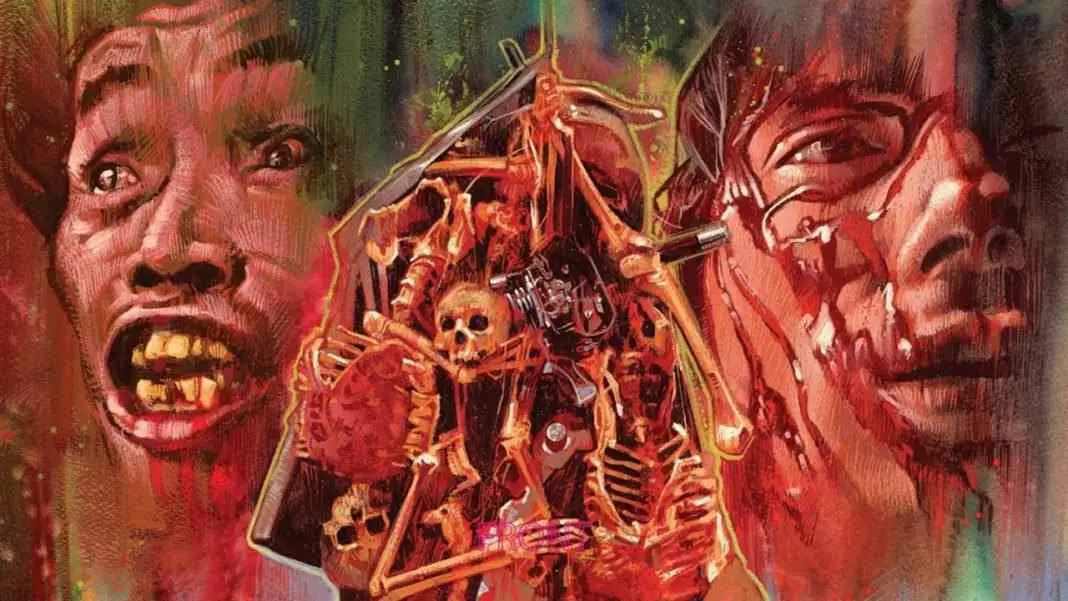Laurie Strode in the original Halloween is often referred to as the quintessential final girl. The problem is that she’s not always referred to as such in the most positive context. For some, even fans of the film, she represents everything that is wrong with the slasher genre. She’s the repressed, virginal, stereotypical friend who condemns the behavior of her more promiscuous friends. They see her as inherently representative of the inherent misogyny in slashers. And maybe there’s a little bit of that in there, but overall I think people who look at Laurie in that context are coming into it with a knowledge of the tropes and conventions of slashers firmly at the front of their mind.
Laurie is absolutely the responsible one of the group. She’s the one that’s actually into babysitting instead of using it as an excuse to do anything else. I think that’s crucial to her character, just reading the way she is presented in the original film. When you examine her character in the original, Laurie might not be indulging in the same activities as her friends, but she doesn’t condemn them at any point. If anything, she’s envious. And she actually does partake in smoking a bit of weed with Annie early on.
But Laurie is definitely more interested in babysitting than her friends, that much is obvious. I think there’s a reason for that. Laurie actually enjoys babysitting, she has fun with the kids and even shows reverence for the holiday itself. For her, babysitting can almost be seen as an excuse to still partake in those classic Halloween traditions. Taking care of these kids allows her to be a kid again by extension.
I think this is a crucial aspect of Laurie’s character as depicted specifically in this film. She’s on the cusp of adulthood, of maturity. In some ways she is clearly more mature than her other friends, but in some ways she isn’t. She’s not as quick to jump into things like sex because it doesn’t seem like she’s quite ready to give up being a kid. There’s a heavy aspect of nostalgia to her character, embodied best when she sees a young group of trick or treaters and watches them nostalgically, saying to herself “I thought you outgrew superstition.”

In that respect, Laurie’s arc in the movie represents an acceptance of responsibility and mortality—which is perfect when you pair it up with the idea of Michael Myers as a stand-in for death itself. He is immovable, absolute, he never stops coming. Laurie does not defeat him by the end, but in this context it’s not about defeating death, it’s simply about confronting it. And through the act of confronting it, she is allowed to mature. Even if she is cowering in the final moments, she proves herself as a resourceful heroine in her battle with the shape. She becomes hyper-alert and protective the moment she realizes that the children are in danger.
For these reasons, it’s tough to criticize Laurie as a misogynist character or lifeless final girl prototype. I think she does feel like an authentic, interesting teenage girl, as do both Lynda and Annie—and that comes from having a female co-writer who could speak to being a girl at that age. Laurie is not criticizing Annie and Lynda for their active sex lives. In fact, she actually takes an interest in them.
She’s very curious about this topic and tiptoes around it—again, almost as a child would. Laurie very meekly brings up, late into the conversation, her own interest in dating. It’s not a subject she’s comfortable with, but that doesn’t make her any more morally righteous than the other two girls. It just makes her a shy teenager with no clue what she’s doing.
 Laurie finds her maturity in a sense of responsibility. That is where her sense of growth stems from, because when it comes to other aspects of teenage life—especially sex—Laurie’s depicted much more as a late bloomer than any kind of morally righteous stalwart conservative. She never once turns down her nose at them. In fact, I’m not even sure if “late bloomer” would be the right term as she clearly shows an interest.
Laurie finds her maturity in a sense of responsibility. That is where her sense of growth stems from, because when it comes to other aspects of teenage life—especially sex—Laurie’s depicted much more as a late bloomer than any kind of morally righteous stalwart conservative. She never once turns down her nose at them. In fact, I’m not even sure if “late bloomer” would be the right term as she clearly shows an interest.
In that respect, Laurie is actually fairly relatable for horror fans as she is a part of that social circle, but not at the center of it. She’s not popular, but she’s not necessarily unpopular, and that’s something I definitely related to in high school.
For me, Laurie Strode is a focal point for the audience in the original Halloween. She’s a character that we can relate to, but she’s also more aware of her surroundings in a way that the other two girls aren’t. Part of this stems from that feeling of isolation, part of it stems from the fact that she doesn’t quite feel ready to be like them just yet, to indulge in the things that they’re doing even if she clearly wants to. Laurie is still deeply connected to childhood, she’s living vicariously through Tommy and Lindsay, still celebrating the classic Halloween traditions.
In this respect, she bears a strong similarity to another character: Michael Myers. After all, Michael is introduced as a child and this act of murdering his sister at six years old is what defines him throughout the film. He is also attempting to relive his childhood in a much more direct and much darker way by attempting to recreate his original crime. Obviously, he is also very aware of the holiday as well. It’s their methods of celebration that really separate the two of them.
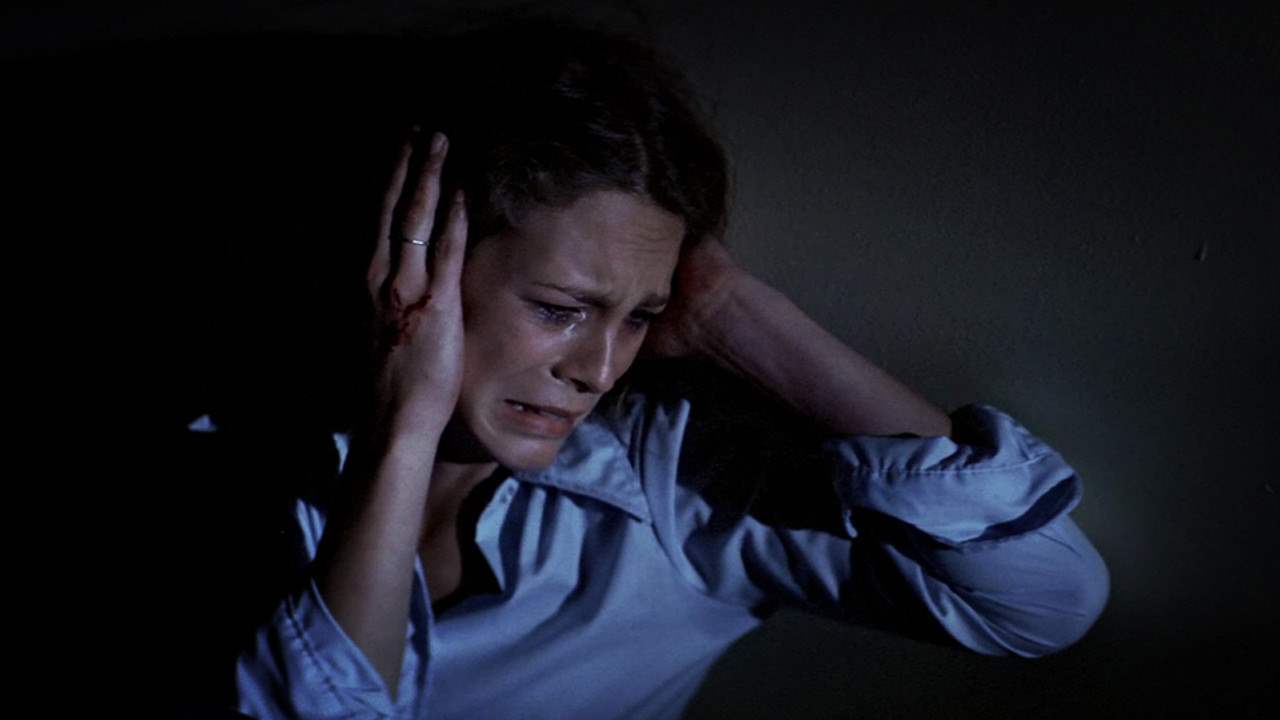 Halloween is typically celebrated in one of two ways: you either embrace the rules or you don’t. You carve pumpkins or you smash them, give out candy or give out razor blades, give out candy or pull pranks. Basically, you treat or you trick. As we’ve pointed out, Laurie is celebrating Halloween in very traditional ways. Michael, on the other hand, is a trickster. He may be stoic and silent, but his actions speak volume and even hint at an unmistakable sense of glee—which is, again, childlike—in what he is doing. He’s rigging a haunted house for Laurie to walk through at the end, he’s propped up her dead friends, and these things are just gags for him. In that respect, the heroine and the villain compliment each other in a very intriguing way.
Halloween is typically celebrated in one of two ways: you either embrace the rules or you don’t. You carve pumpkins or you smash them, give out candy or give out razor blades, give out candy or pull pranks. Basically, you treat or you trick. As we’ve pointed out, Laurie is celebrating Halloween in very traditional ways. Michael, on the other hand, is a trickster. He may be stoic and silent, but his actions speak volume and even hint at an unmistakable sense of glee—which is, again, childlike—in what he is doing. He’s rigging a haunted house for Laurie to walk through at the end, he’s propped up her dead friends, and these things are just gags for him. In that respect, the heroine and the villain compliment each other in a very intriguing way.
When looking at Laurie in this light, I think she’s a much more interesting character than she’s given credit for, and certainly a less misogynistic portrayal. That’s not to say that the movie gets off scot free, as it is jarring to see Loomis rush in to save her at the last second or to see her cowering at the very end, but the intentions behind her are clear. She shows a clear resourcefulness throughout the feature, she’s clever, even a little sassy and sarcastic, and these are ultimately well-realized and compelling traits. At the end of the day, the reason she’s survived so long as classic horror protagonist is because she’s truly one of the best.
